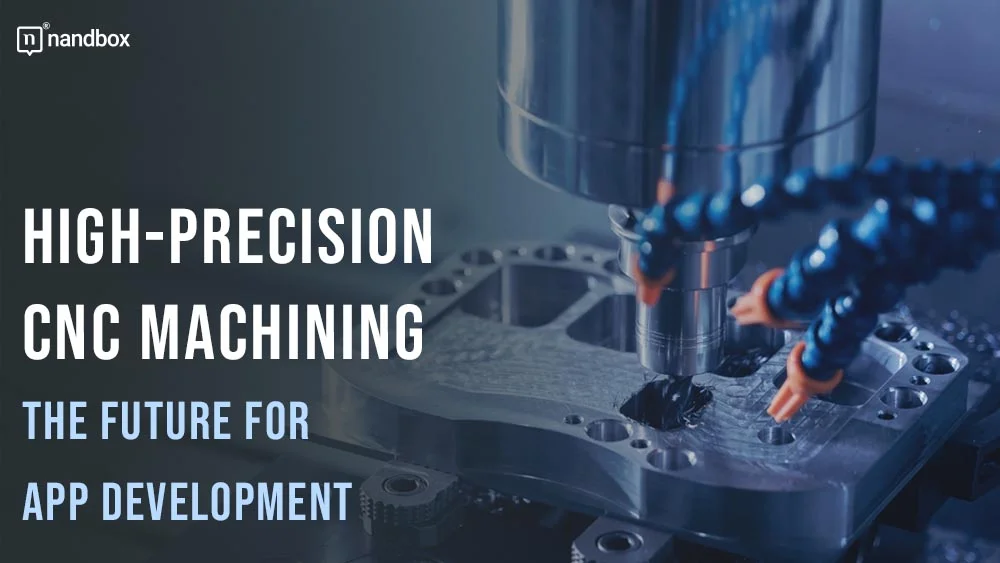As mobile app technology continues to advance at an astonishing rate, so too must the hardware that supports it. From sleek mobile devices to advanced processors and chipsets, hardware plays a critical role. It ensures that apps run smoothly, efficiently, and without interruption. Behind much of the high-quality hardware found in modern mobile devices is a powerful manufacturing process known as CNC (Computer Numerical Control) machining. High-precision CNC machining is driving the future of mobile hardware by producing components with exceptional accuracy, durability, and reliability.
The Importance of Hardware in Mobile App Performance
While mobile apps are designed in the virtual realm of software development, their performance is intrinsically tied to the physical hardware of the device on which they run. Mobile processors, memory chips, and graphics cards. Even the physical casing of a device all works together to ensure that apps function properly.
For instance, high-performance apps, such as mobile games or augmented reality applications, require powerful hardware to manage large amounts of data, handle complex computations, and render graphics smoothly. Without robust hardware, these apps may crash, lag, or offer a poor user experience. Hardware doesn’t only influence how fast apps run but also affects battery life, overheating issues, and overall device longevity.
This reliance on precision hardware for mobile apps underscores the need for advanced manufacturing techniques. For instance, CNC machining ensures that each component fits the required specifications for optimal performance.
What Is High-Precision CNC Machining?
CNC (Computer Numerical Control) machining is a highly accurate, automated process where machines are programmed to follow specific instructions to cut, shape, or drill materials into precise designs. This process is crucial for creating the small, intricate parts used in mobile devices, such as microchips, housings, and internal frameworks.
High-precision CNC machining refers to the ability to produce components with extremely tight tolerances, often to the micrometer level. This degree of accuracy is essential for manufacturing the intricate hardware that powers mobile devices. Mobile processors, for example, must be produced with minimal variations in size or shape. This is to ensure they fit perfectly into the device and function efficiently.
CNC machining also allows for the use of various materials, including metals, plastics, and ceramics, to meet the specific requirements of each mobile component. Companies like Yijin Hardware Custom CNC Machining ensure that each part is manufactured to exact specifications, offering the precision needed to create durable and efficient mobile hardware.
How CNC Machining Enhances Mobile Hardware Quality
CNC machining offers several key benefits when it comes to the production of mobile hardware. These advantages help ensure that the final product is not only functional but also capable of supporting the high demands of modern mobile apps.
1. Durability
Mobile devices are subject to constant use and physical wear and tear. As a result, the materials and construction of the device must be able to withstand various environmental factors. For example, drops, impacts, and temperature fluctuations. CNC machining creates robust components, such as the device’s outer casing or internal framework, that are built to endure these stresses.
High-precision CNC machining also ensures that mobile components are manufactured with consistent quality. This reduces the risk of weak spots or structural flaws. This durability is particularly important for devices used in industries like healthcare, engineering, and gaming. The hardware must be both reliable and long-lasting.
2. Efficiency in Production
The efficiency of CNC machining is another significant advantage for mobile hardware manufacturing. Once a part design has been programmed into the CNC machine, it can be replicated with high precision across large production runs. This automated process minimizes the chance of human error and allows for quicker production times. This is crucial for manufacturers looking to meet tight deadlines and high consumer demand.
Furthermore, CNC machining offers flexibility in design changes. If a new mobile device model requires slightly different internal components, manufacturers can quickly adjust the CNC machine’s programming to accommodate these changes without the need for entirely new machinery.
3. Customization
As mobile technology evolves, the demand for customized hardware solutions increases. Different mobile devices may require unique internal layouts, specialized cooling systems, or new types of processors. This is to support advanced applications like 5G or augmented reality. CNC machining’s ability to produce complex, customized parts makes it an ideal solution for meeting these demands.
Mobile hardware manufacturers can quickly adapt to changing trends by adjusting CNC machines to create components tailored to specific device requirements. This adaptability is crucial for staying competitive in an industry where innovation moves rapidly.
The Role of CNC Machining in the Future of Mobile Hardware
Mobile technology is undergoing significant transformations, driven by advancements. This includes 5G, artificial intelligence (AI), and the Internet of Things (IoT). As these technologies become more integrated into mobile devices, the hardware components that support them must also evolve.
1. 5G and Increased Data Processing
With the rollout of 5G networks, mobile devices need to process much larger volumes of data at higher speeds. This requires more advanced processors and communication chips that can handle the increased data flow without overheating or consuming excessive power. High-precision CNC machining is essential for producing these chips with the necessary accuracy and durability. It ensures they can keep up with the demands of 5G applications.
2. Artificial Intelligence and Machine Learning
Mobile devices are increasingly incorporating AI and machine learning capabilities. The demand comes more from their hardware, particularly when it comes to processing power and data storage. AI-driven apps require hardware components like GPUs (Graphics Processing Units) and TPUs (Tensor Processing Units) that can handle complex calculations in real time.
CNC machining plays a vital role in producing these components with the precision needed to process AI-driven applications efficiently. This helps ensure that mobile devices can run advanced features, such as facial recognition, voice assistants, and real-time data analysis, without lag or errors.
3. The Internet of Things (IoT)
As more devices become interconnected through the IoT, mobile hardware will need to support a wider range of sensors, communication chips, and other components that allow for seamless connectivity. These IoT-enabled devices, from wearables to smart home systems, require precise hardware to function reliably across different environments.
CNC machining is key to manufacturing the miniaturized, high-precision components necessary for IoT devices. Whether it’s a tiny sensor embedded in a wearable or a communication chip inside a smartphone, CNC machining ensures that these parts meet the stringent demands of IoT integration.
Looking Ahead: CNC Machining and Mobile App Development
As mobile app development becomes more sophisticated, so too must the hardware that supports it. The trend toward smaller, faster, and more powerful devices is set to continue. Therefore, high-precision CNC machining will be a critical tool in meeting these demands.
In the future, we can expect to see even more advanced hardware solutions that push the boundaries of what mobile devices can achieve. This could include new materials, more intricate component designs, and even greater customization options, all made possible through CNC machining.
For mobile app developers, this means having access to more reliable, high-performance devices that can handle the complex applications of tomorrow. Whether it’s through supporting faster data processing, enhancing AI capabilities, or enabling seamless IoT integration. The future of mobile technology will be powered by precise, efficient, and customizable hardware.
Conclusion
High-precision CNC machining is revolutionizing the way mobile hardware is produced, providing the foundation for the next generation of mobile devices. From ensuring durability and customization to supporting emerging technologies like 5G, AI, and IoT, CNC machining plays an essential role in the ongoing evolution of mobile technology.
As mobile apps become more advanced, the demand for high-quality, precise hardware will only increase. CNC machining will continue to be at the forefront of this innovation, enabling manufacturers to create the hardware components that mobile developers need to bring their ideas to life.





